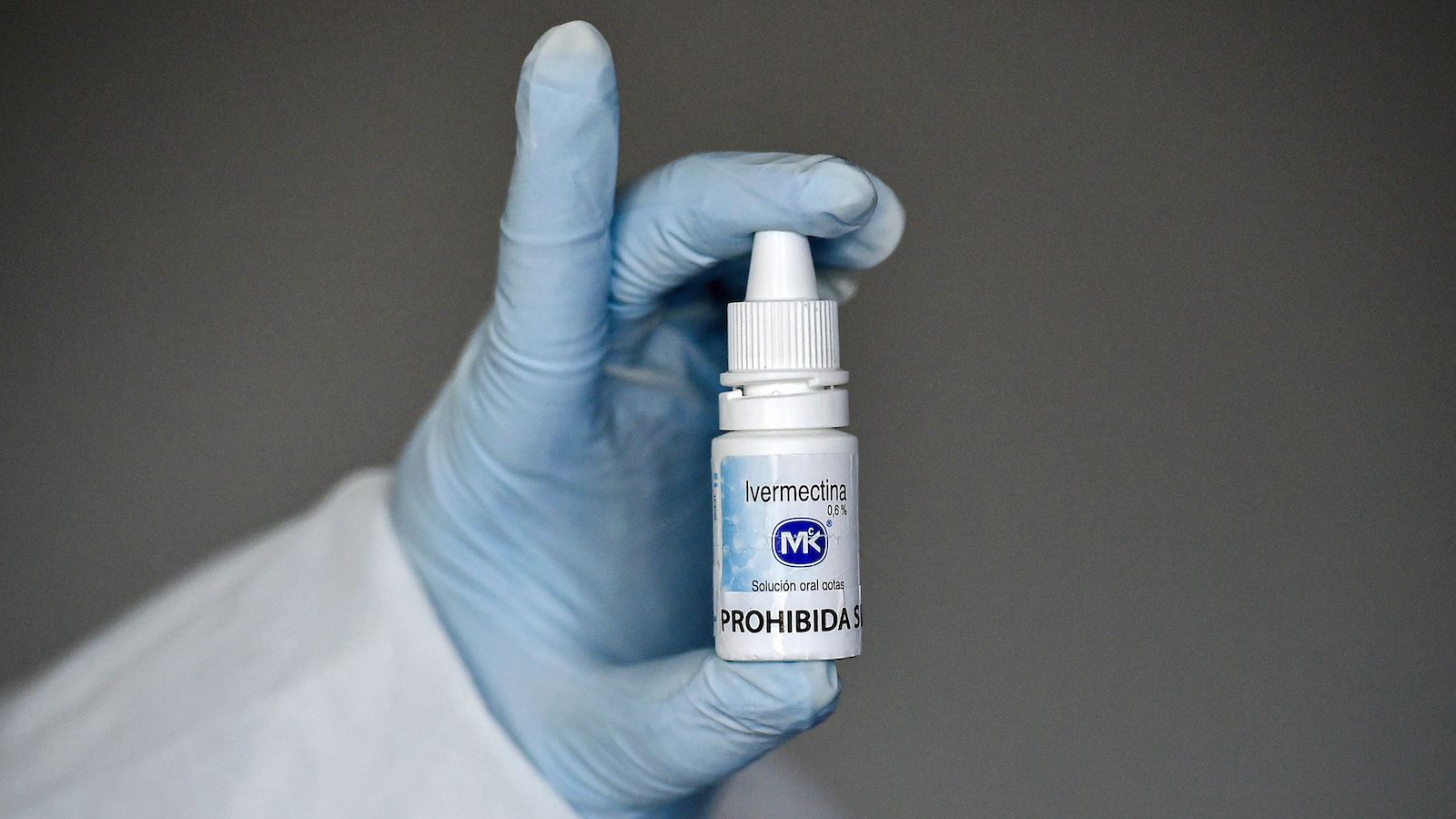The ethical dilemma of prescribing ivermectin against covid-19 2:47
(CNN Spanish) -
Ivermectin, a medicine against parasites, is widely recommended in Latin America as protection against the coronavirus.
This is not scientifically proven.
The US Food and Drug Administration (FDA) does not recommend using it as a prevention against covid-19.
According to research published in the Journal of the American Medical Association (JAMA), ivermectin did not appear to have a significant impact on improving symptoms in COVID-19 patients.
In this episode, Dr. Elmer Huerta explains how this theory began.
You can listen to this episode on Apple Podcasts, Spotify, or your favorite podcast platform, or read the transcript below.
Hello, I am Dr. Elmer Huerta and this is your daily dose of information about the new coronavirus.
Information that we hope will be useful to take care of your health and that of your family.
advertising
Today we will see what ivermectin is, an ancient drug against parasites that is widely used - without a solid scientific basis - against covid-19.
LOOK: Ivermectin: the untested drug against covid-19 that broke out in Latin America
What is ivermectin?
Ivermectin is a drug that is derived from a substance isolated in the early seventies, from soil samples in Japan and that has the curious activity of being very active against two types of parasites, those that affect both the interior and the exterior of the body.
Ivermectin is very effective against external parasites such as lice and mites that cause scabies.
Also against roundworms, including roundworms, very common in children and adults who live in conditions of poor hygiene.
It is also effective for filariae and onchocercias, which cause elephantiasis and onchocerciasis, two very debilitating diseases common to millions of people living in the poorest regions of Africa.
Ivermectin is considered one of the most useful medicines ever discovered.
This is because - with the help of the Carter Center - it has contributed to almost eliminating onchocerciasis or "river blindness" in Africa, a disease that, as its name implies, is one of the main causes of blindness in that continent. .
How did the use of ivermectin start against the coronavirus?
It all started on April 3, when in a pre-publication, Australian scientist Kylie Wagstaff reported that by using a very high amount of ivermectin (approximately 50 times the commonly used dose), the medicine was able to prevent SARS CoV2 from entering a cell culture.
This is what is called an in-vitro study, that is, in a test tube.
Two weeks later, doctors in Bangladesh reported that they had managed to "cure" 98% of patients who received the combination of ivermectin and the antibiotic doxycycline.
It is important to clarify that the administration of these drugs was not part of a study.
More than 90% of patients with covid-19 recover spontaneously.
It is possible that the patients could have recovered without the use of these medicines.
Possibly motivated by the study by Dr. Wagstaff and the report from Bangladesh, and in the midst of the urgency to find effective medicines against the new coronavirus, is that doctors in Peru, Bolivia, the Dominican Republic and Mexico began to promote the use of the Ivermectin for the prevention and treatment of covid-19.
In the following months, the unapproved use spread to almost all Latin American countries.
Drug not approved for covid-19 runs out in Ecuador 3:27
The use of ivermectin in Latin America: the role of politicians
The rationale for using a medicine without scientific evidence is based on the concept that "if it has not been shown to work, it has not been shown that it does not."
Its use has been so popular in Latin America that it has been distributed by politicians such as the former president of Peru Martín Vizcarra and the mayor of Guayaquil, Cynthia Viteri to thousands of people, trying to win popular favor, stating that the drug, including that of veterinary use, it can protect them from the virus.
Some say that a cult of ivermectin has been created, even originating conspiracy theories that claim that large laboratories oppose its use for fear of losing money in the sale of other drugs.
What the scientists say
At the moment there are more than a hundred studies that seek to show that ivermectin can be useful.
However, a recent review of 11 studies or meta-analyzes on the drug, carried out by researchers at the University of Liverpool under the auspices of UNITAID, which receives advice from the World Health Organization, concludes that despite having some evidence studies are very disparate, have many limitations, and it is not possible to draw a definitive conclusion.
In summary, at the moment there is no scientific evidence that ivermectin has any effectiveness in the prevention and treatment of covid-19.
Its use can be explained as an expression of the enormous and well understood hope of the people that it works, or as expressed by the Minister of Health of Peru “as long as there is nothing conclusive that tells us that it does not work, we will continue to use it as it is used in other countries.
Do you have questions about the coronavirus?
Send me your questions on Twitter, we will try to answer them in our next episodes.
You can find me at @DrHuerta.
You see that we answer them.
If you think this podcast is helpful, help others find it by rating and reviewing it on your favorite podcast app.
We will be back tomorrow so be sure to subscribe to get the latest episode on your account.
And for the most up-to-date information, you can always head over to CNNEspanol.com.
Thanks for your attention.
coronavirusCovid-19ivermectin






